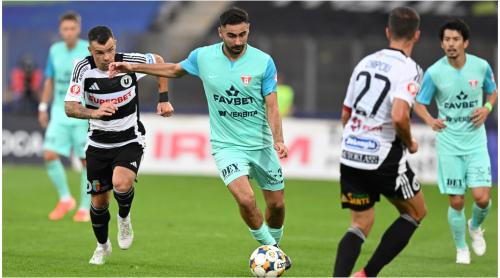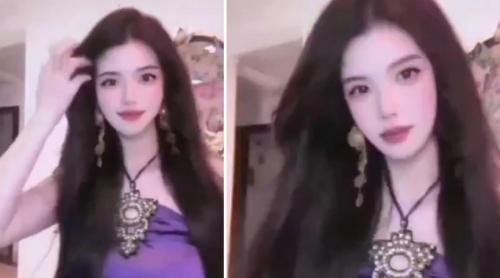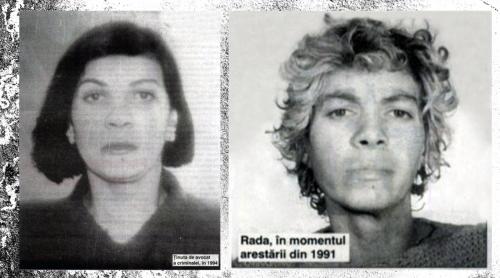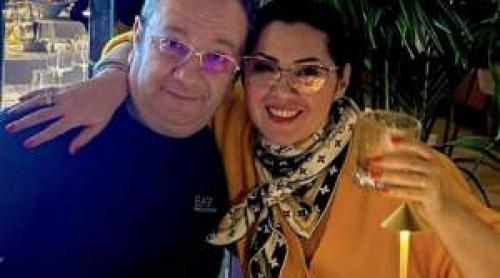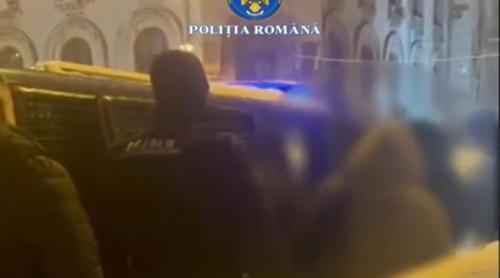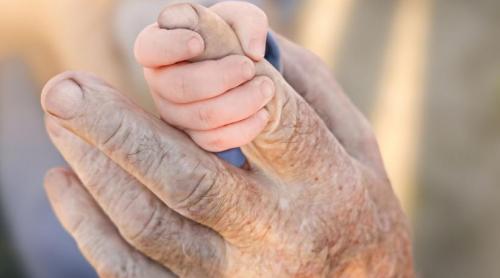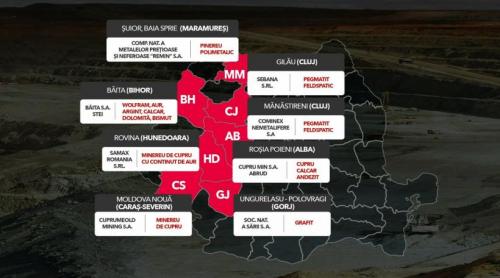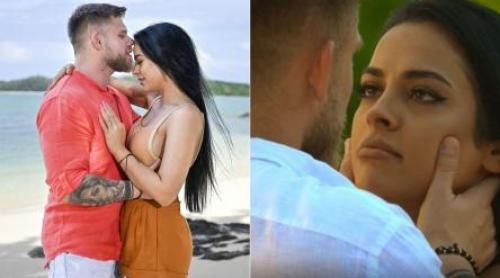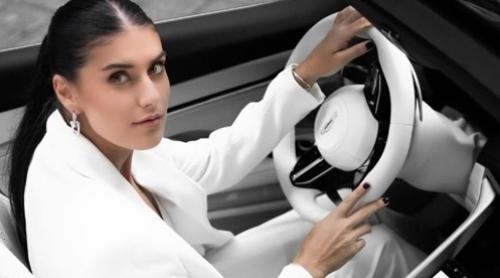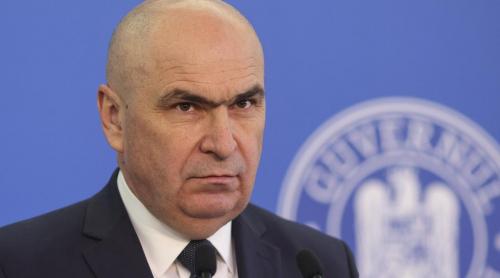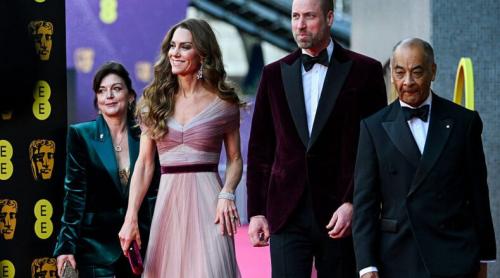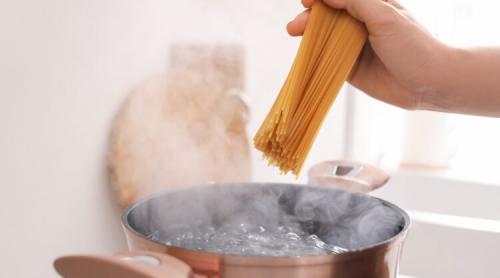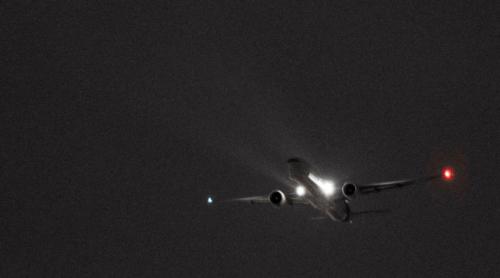
Dominick Montiglio served under the orders of the famous mafia man Paul Castellano. He was arrested during a large operation led by Rudolf Giuliani, admitted his guilt and pled guilty in the subsequent trial, getting a deal with the FBI and thus into the witness protection program. He managed to not do time and also avoid the contract the mafia family placed on his head, and finally opted to make a living as a working artist.
Jurnalul National: How did you get inside the Mafia?
Dominick Montiglio: I was born into it. My uncle, Nino Gaggi, was the right hand of Paul Castellano, the Capo of the Gambino Family. In my house was organized the meeting following which Big Paulie, which I deem to be the last romantic Capo of the Mafia, was elected "cappo dei tutti cappi." This time I was standing upstairs, guarding the front door with a machine gun in my hands. Maybe this was why I did not follow the special initiation procedure.
JN : Your parents had no say in this ? Were they part of the Family too?
DM : My father was a boxer and a drunk. In fact my uncle took me out of my parentsâ home by force, as he was unhappy with the environment I was growing up into.
I frequently met my father on the street, but he was forbidden from contacting me or engaging me in any type of dialogue.
JN: So Nino Gaggi was the mentor â¦
DM: More than that: we had a love and hate relationship.
JN: Can you go into details?
DM: Sure. My dream was to become a professional jazz singer. I even had a band which was well received by the critics in those years. But Nino was against it, saying that was an unhealthy environment, with hookers, booze and drugs. However, I had a lot of those while working for the Gambino Family, said Montiglio smiling.
Furthermore, my uncle decided that since I could kill for the government, I might as well do it for the Family â¦
JN: What do you mean you killed for the Government?
DM: In Vietnam, as all soldiers did. I served three times in active duty, as a sniper too, and killed 93 people. Itâs confirmed.
JN: What accuracy ...
DM: It was a matter of either me or him. I can assure you that were you in my place you too would have known exactly how many people you killed. To make you understand that I am not as bad as you might think, I want to tell you that when I got back from Vietnam I wanted to join the police force. Now take a guess: who was against it?
JN: Uncle Nino?
DM: (He laughs whole heartedly.) Absolutely. He would rather agree with me becoming a jazzman than a policeman. In fact, I liked to be a soldier, but a soldier never gets to drive a Mercedes.
JN: Could Nino have been the only one to blame for you evolution?
DM: No, it will be too much to place the blame only on him. At the end of the day, to be born into the Gambino Family was a fact; becoming a soldier on the pay-roll of Paul Castellano was a choice waiting to happen. As a matter of fact, I felt pretty good: I had a lot of money, lived in a luxurious house, drove expensive cars and had a feeling of being intangible and that everything will last forever. I was totally out of control. Think about it: I was handling some 100,000 dollars a week, which I was passing on to Castellano.
JN: How did you make that kind of money?
DM: Drugs - mainly cocaine - , extortion; well, what kind of business do you expect the Mafia to conduct?
JN: I understand that your cut of the deal was pretty big ...
DM: It was enough money to afford a two million dollar house on a private island, one Ferrari, two Mercedes cars and as many women as I wanted. And believe me that I wanted, said Montiglio giggling.
JN: What did your wife think about it?
DM (putting on a poker face): She had a Mercedes, a Piaget watch worth 30,000 dollars, and enough money to raise the children. Why would she object?
JN: How did you career end?
DM: Very abruptly. I was arrested in 1983, for extortion, on a mandate signed by prosecutor Rudi Giuliani (later the New York mayor). It was a big operation at the time, with hundreds of arrests among the Mafia members. Paulie (Castellano) and Nino were afraid that I will spill the beans, so they planned to kill me while I was in prison. At the time there was a one million dollars contract on my head. As I had no intention of leaving my family to die and also cared for my life, I decided to cut a deal with the authorities. This is why I was the only one to get five years, under parole, while the rest of them took some 168 years each, life in prison and no right to parole. So I got into the witness protection program. I moved around every six months and took all sorts of odd jobs to support my family. But the 14,000 dollars a month the US Government was providing me with was no way to provide for five people, including the moving around.
JN: What happened to your personal assets?
DM: They were all confiscated by the IRS. They took everything, including the kidsâ clothes, as property resulted from illicit sources; it was all auctioned. They sold my house for 2.5 million dollars, but I have no idea who bought it. I also was pretty reckless, in that I had all properties in my own name; this time my uncle Nino Gaggi died in prison from a heart condition, but he died a wealthy man.
JN: How many crimes do you have on your conscience?
DM: One, since that was how I pleaded at the trial, says Montiglio laughing, but not wholeheartedly.
JN: And in earnest?
DM: If that was the ruling they arrived at ...
JN: I understood that you got out of the witness protection program. Why? How do you make a living?
DM: I got tired of having other people telling me what to do. I am 58 and I cannot stand to hear the phone ringing every six months telling me I have to move. I have my family around me and we all live in the same city, even though my wife divorced me in the mean time.
JN: How do you make a living?
DM: From art. Since I was unable to do it in jazz, I try my hand in painting. I have an art gallery and a web-site, www.dominicks-lair.com, and live from selling the paintings that I do. I have no complaints with that. At the end of the day, painting is to me both passion and therapy.
JN: How much do you make on a painting?
DM: From 200 to 10,000 dollars. Many are more intrigued by my story than my paintings. I am aware of that and do not mind it. No one is an angel.
JN: Do you follow the development of the Mafia today? If so, what do you think of it?
DM: Of course I do; they are part of my life, after all. What can I say: there are no big families as they used to be. The Italians laundered their money and went legit now, doing million dollars businesses in construction, sanitation or other fields. If I come to think of it, Castellano did not need to become a mobster, for he was a perfect businessman. The rest of them? There are drug dealing clans, and thatâs it. The Russians are the most dangerous ones; they have no style at all: they have no problems killing whole families.
JN: Do you have any regrets for the life style you have led?
DM: When I look back I regret only the deaths of innocent people. The others were part of all sorts of illegal stuff, none of them was an angel. The Italian Mafia kills innocent people only by mistake. Otherwise, the life I led until my arrest was pretty wild, among action people, full of events. But money has a corruptive power; they turn you into a swine. Now I can say that I was happy to be given a second chance in life. Few people have that.
JN: Do you watch mobstersâ movies?
DM: I am curious, of course; but they have little resemblance with reality. At least "The Sopranos" is a pitiful series. The only character which is closer to reality is Donnie Brasco. When I see movies showcasing values like loyalty, honor, trust, I burst out in laughter. All in life is about death and money. Religion? It is for women and children, not for mobsters. While the justice system does not work; it all depends on how much money one has. Take for instance the O.J. Simpson case â¦
JN: Can you describe the Mafia in one sentence?
DM: The bottom line is killing.
Citește pe Antena3.ro



